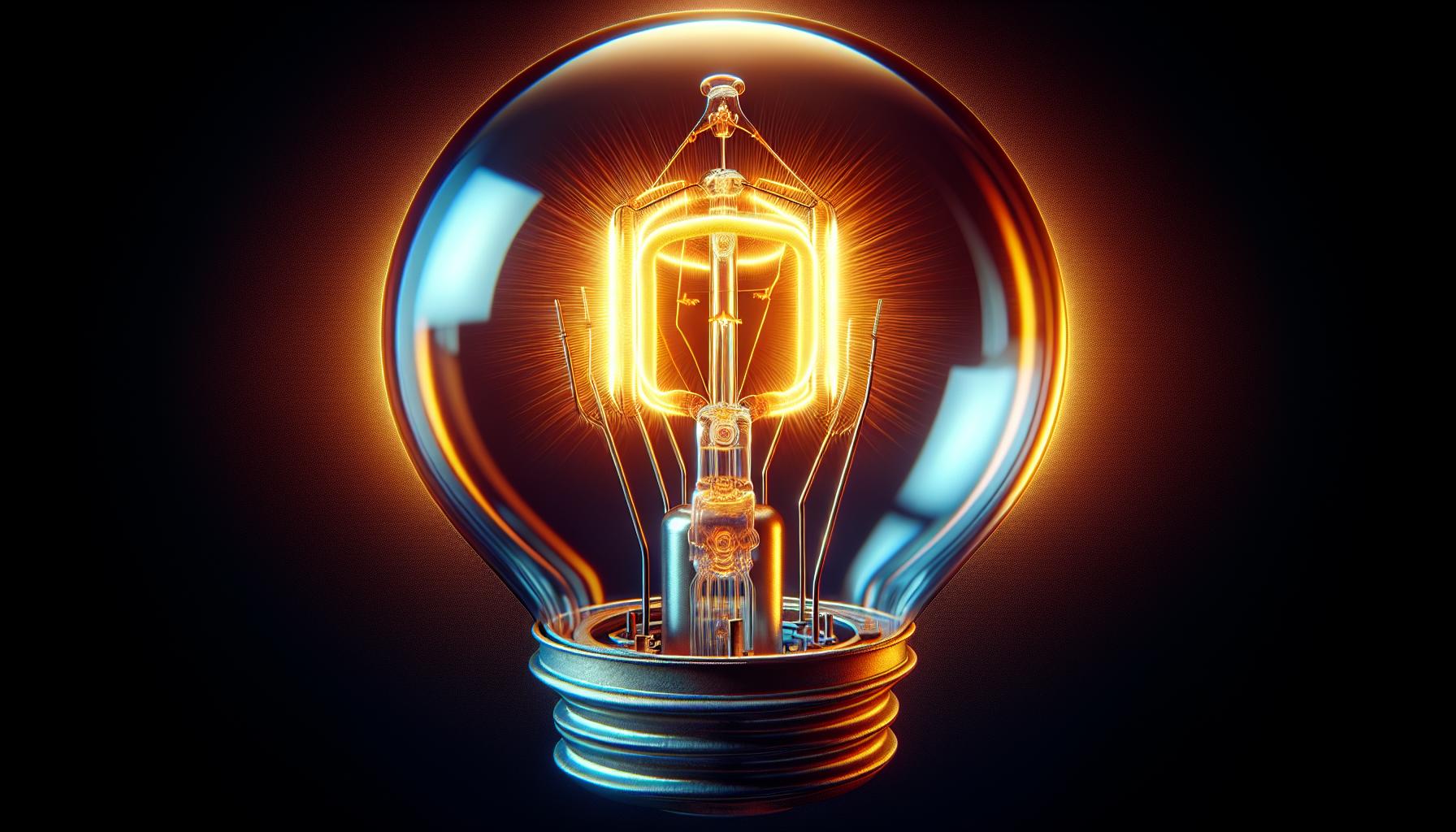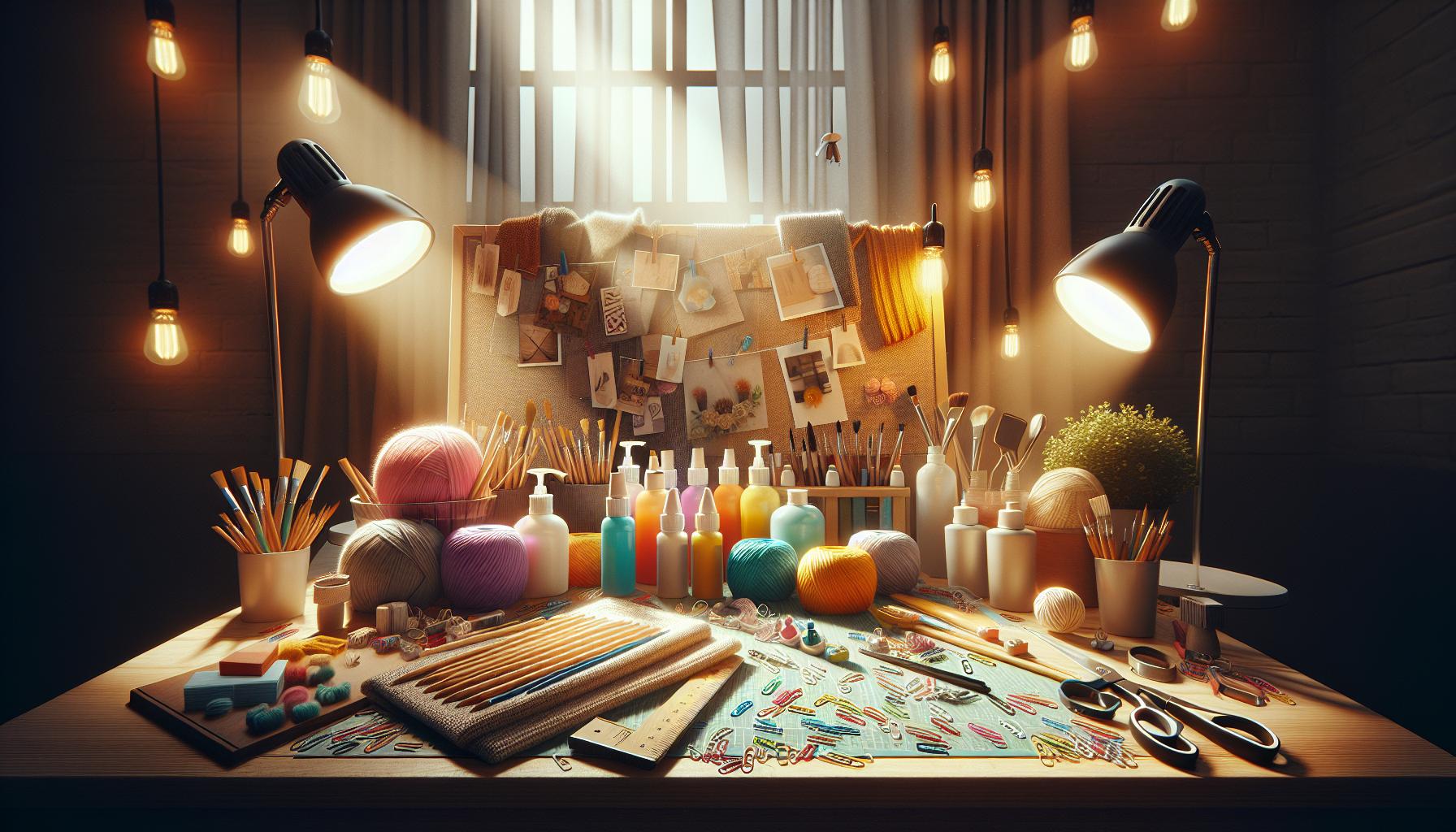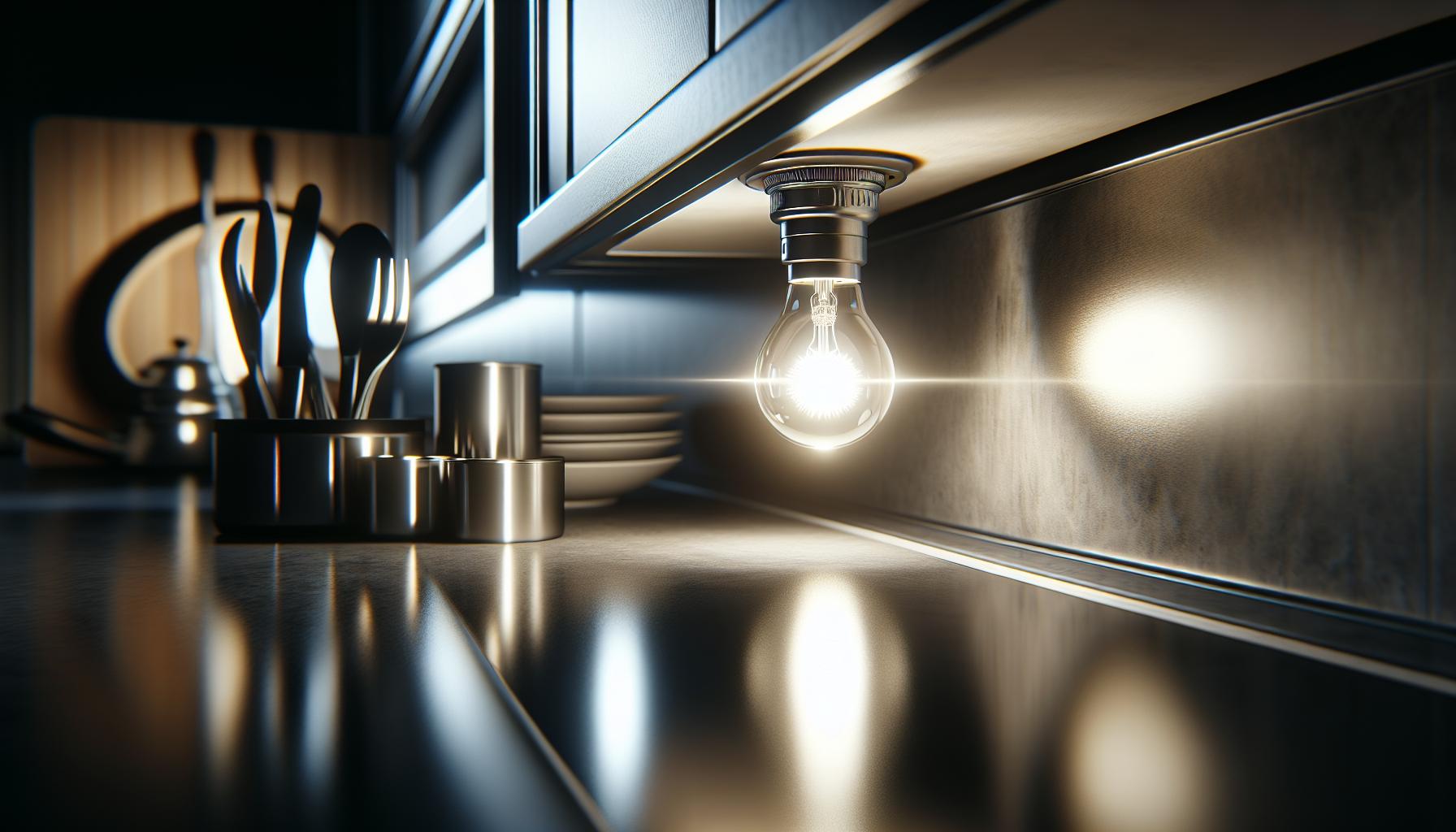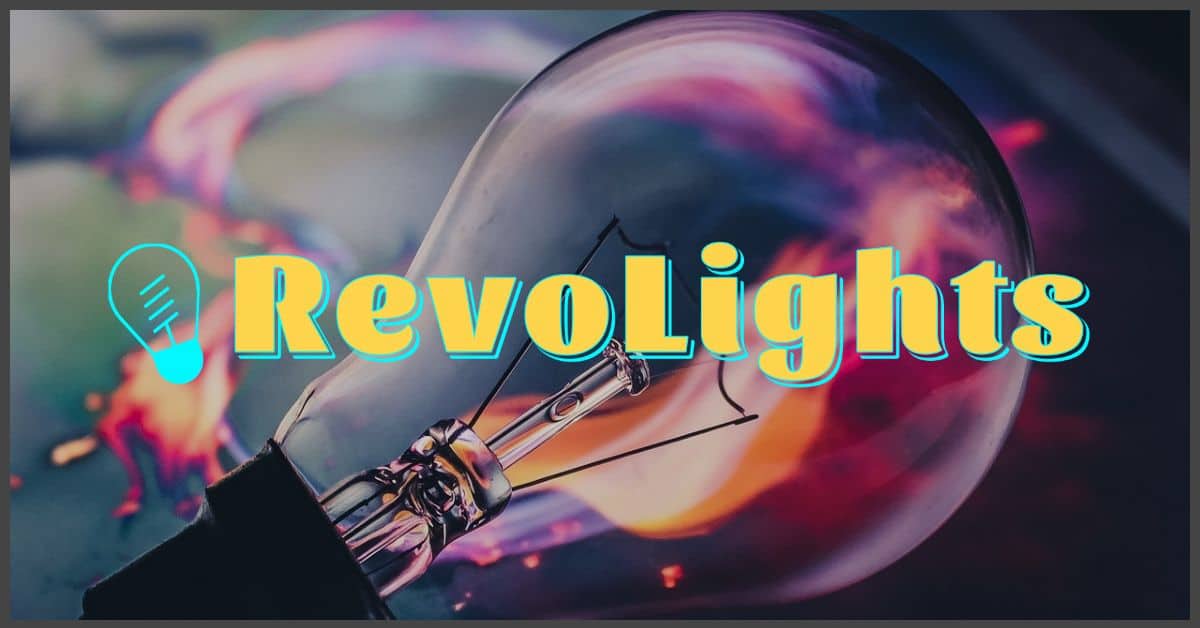Ever wondered why some lights offer a crisp, bright glow that seems to make colors pop? That’s the magic of halogen light bulbs at work. They’re a type of incandescent bulb, but with a twist that gives them a longer life and better efficiency.
You might’ve seen halogen bulbs in a variety of settings, from car headlights to desk lamps. They’re known for their strong, white light, which is all thanks to the halogen gas inside these little glass marvels. Let’s dive into what makes halogen bulbs shine so brightly in the world of lighting.
What are Halogen Light Bulbs?
You’ve probably noticed that some light bulbs in your local hardware store are labeled as halogen and you might wonder how they’re different from the standard incandescent bulbs you’re used to. Halogen light bulbs are a specific type of incandescent lighting that are crafted not only to brighten your space but also to do so more efficiently and with greater longevity.
At their core, halogen bulbs function similarly to traditional incandescent bulbs. They both produce light through a filament that heats up by electrical current until it glows. However, halogen bulbs have a twist to the tale. Within their quartz envelope, which is smaller and tougher than the typical glass used for other incandescent bulbs, there’s a halogen gas. This gas reacts with the tungsten vapor that comes off the glowing filament, redepositing it on the filament itself. This recycling act is what gives halogen bulbs their longer life and consistent light output.
Key Characteristics
To further appreciate halogen bulbs, understanding their distinctive features is essential. Here’s what sets them apart:
- Intensity: Halogen bulbs are renowned for their brightness. Their light is often compared to natural daylight, which can be perfect for task lighting or areas where fine detail is essential.
- Energy Efficiency: While they’re more efficient than traditional incandescent bulbs, they’re not as energy-saving as LEDs. Nevertheless, you’ll see a reduction in your electric consumption compared to regular incandescent usage.
- Dimmable: Halogens dim beautifully, giving you full control over your room’s ambiance. It’s a smooth transition, with no flickering, making them ideal for rooms where mood setting is important.
- Color Temperature: Offering a range of color temperatures, halogen bulbs can cater to different room settings, be it a warm, cozy glow or a crisp, white light that mimics noon daylight.
Knowing these traits will help you make informed decisions on whether halogen offers the lighting solutions you’re looking for. Whether you’re installing them in your reading nook for better visibility or using them to highlight your kitchen countertops, halogens can provide the illumination that best suits your DIY home project’s demands. And for those who love a touch of sophistication, halogens can add a spark of brilliance to any room’s design, all while offering a dependable light source.
How do Halogen Light Bulbs Work?
Picture the glow emanating from a cozy reading nook or the bright white light of your workspace—chances are, it’s the work of halogen bulbs. These bulbs are more than just pieces of glass; they’re feats of engineering designed to light up your life in a brilliant way.
At their heart, halogen bulbs contain a tungsten filament, just like their incandescent relatives. But here’s where things get interesting: inside the bulb, there’s a gas from the halogen group, usually iodine or bromine, that works in tandem with the filament. When you flick on the switch, electricity flows through the filament, heating it up until it glows and produces light.
But there’s a twist. As the tungsten filament gets hot, it starts to evaporate, and ordinarily, this would cause a filament to break down and the bulb to “burn out.” Not so with halogens. The halogen gas inside the bulb reacts with the vaporized tungsten, and through a process called the halogen cycle, it redeposits the tungsten back onto the filament. This recirculation does a couple of noteworthy things:
- It extends the filament’s life.
- It ensures a consistent light output throughout the bulb’s lifespan.
Moreover, this delicate dance between gas and metal allows the bulb to run hotter than a standard incandescent. And what do you get when you run hotter? A brighter, whiter light, that’s what. Perfect for those intricate DIY projects that require a keen eye, or simply for reading the tiniest print in your favorite novel.
One thing to keep in mind is that due to this increased temperature, halogen bulbs are often constructed with quartz instead of regular glass. Quartz can handle the higher temperatures without cracking—a quality you’ll appreciate when you need a reliable light source during those long, project-filled hours.
Remember, while handling these bulbs, it’s best to avoid touching the quartz glass directly, as oils from your skin can create hot spots that reduce the lifespan of the bulb. Always grasp a halogen bulb with a cloth or use the protective sleeve it came in, ensuring you get the most out of your lighting.
Advantages of Halogen Light Bulbs
« What Light Bulbs Save the Most Energy? Unveil the Top Eco-Friendly Options
What Light Bulbs Can Be Used in Enclosed Fixtures? Find Out Here »
When you’re working on DIY projects, you know that good lighting can make all the difference. Halogen light bulbs offer several substantial advantages that you might find particularly useful for your needs. One of the biggest perks is their brilliant, crisp light quality. This means you’ll see the true colors of your project without the yellowish tinge that standard incandescent bulbs can produce.
Moreover, they are more energy-efficient than traditional incandescent bulbs. They use approximately 20%-30% less energy, and while that might not seem like a huge difference at first glance, it adds up over time, saving you money on your energy bills.
In terms of longevity, halogen bulbs have a leg up as well. You can expect a halogen light bulb to last about twice as long as an incandescent bulb. This durability means fewer trips up the ladder for replacements, which is always a plus, especially when you’ve got a long list of DIY projects to get through.
From an aesthetic standpoint, halogen bulbs can enhance your home’s ambiance with their brighter and more focused light. This can create the perfect spotlight effect and enhance the textures and finishes of room features.
| Light Bulb Type | Energy Efficiency | Lifespan |
|---|---|---|
| Incandescent | Less efficient | Shorter lifespan |
| Halogen | 20-30% more efficient | Twice the lifespan |
Lastly, halogen light bulbs are dimmer-compatible, giving you the flexibility to adjust the lighting to suit any mood or task at hand. It’s important to note that not all dimmers are compatible with all types of halogen bulbs, so ensure you’ve got the right match for seamless functionality.
- Energy-efficient
- Long-lasting
- Crisp, brilliant light
- Enhances ambiance
- Compatible with dimmers
Whether you’re painting a room, assembling furniture, or undertaking an intricate craft, having a halogen light bulb overhead can make your project a brighter experience. Just remember to handle them carefully to preserve their life and performance.
Common Applications of Halogen Light Bulbs
When you’re tackling your next DIY project, keep in mind that halogen light bulbs are incredibly versatile and can be found in numerous settings due to their clear, bright light. Whether you’re revamping your home lighting or looking for the right bulb for a specific task, halogens could be your perfect match.
At Home
In your own home, halogen bulbs shine both literally and figuratively. They are often used in:
- Under-cabinet lighting in kitchens for a bright, task-oriented illumination.
- Accent lighting to highlight artwork or architectural features, adding depth and character to your space.
- Outdoor security lights, thanks to their intense illumination capabilities which enhance home security.
Work and Retail Spaces
For those of you looking to light up a workspace or retail area, halogen bulbs are the go-to for:
- Desk lamps where focused lighting is required for tasks like reading or intricate work.
- Showcase lighting in retail stores that makes merchandise appear more vibrant and enticing to customers.
- Overhead fixtures in office settings, providing bright, clear light for a productive work environment.
Entertainment and Vehicles
You might not realize it, but halogen bulbs also play a key role in:
- Stage lighting for concerts and theater productions where precise and powerful lighting is necessary.
- Automotive headlights, prized for their brightness and long-range capabilities, helping you navigate the roads safely at night.
Remember, because of their intense heat output, it’s crucial to ensure that halogen bulbs are properly installed in suitable fixtures, especially in sensitive areas such as draped-ceiling bedrooms or near flammable materials. With their vast range of applications, it’s no wonder halogen bulbs continue to be a top choice for both their performance and efficiency across various lighting scenarios. So next time you’re considering lighting options, think about the crisp, bright ambiance that a halogen bulb can provide for your next project or upgrade.
Conclusion
You’ve seen how halogen bulbs shine across the board, from cozy nooks in your home to the bright spotlights of the stage. They’re not just versatile; they’re performance powerhouses that fit neatly into your daily life, whether you’re highlighting your favorite painting or lighting up the road ahead. Just remember to pair them with the right fixtures to handle their heat. Embrace the brilliance of halogen lighting and watch your spaces transform with their clear, bright glow.
Frequently Asked Questions
What are the advantages of halogen light bulbs?
Halogen light bulbs are known for their performance and efficiency, providing bright, white light and having better color rendering compared to traditional incandescent bulbs. They are also fully dimmable and tend to last longer than their non-halogen counterparts.
In what settings are halogen bulbs commonly used?
Halogen bulbs are used in a variety of settings, including residential under-cabinet and accent lighting, outdoor security lights, desk lamps, showcase lighting in retail, overhead office fixtures, stage lighting in entertainment settings, and as headlights in vehicles.
Can halogen bulbs be used for outdoor lighting?
Yes, halogen bulbs can be used for outdoor lighting, particularly for security lights, due to their intense brightness and wide beam spread.
Are halogen lights suitable for desk lamps?
Halogen lights are an excellent choice for desk lamps as they provide a focused, bright light that can enhance visual clarity for tasks such as reading or writing.
Is it safe to use halogen bulbs in any fixture?
Halogen bulbs should be installed in fixtures that are specifically designed for their intense heat output to ensure safety and longevity of the bulb. Not all fixtures are suitable for halogen bulbs.
Why are halogen bulbs popular in stage lighting?
Their popularity in stage lighting comes from their strong, focused light output, which can be easily directed and controlled for precise stage effects. Additionally, their excellent color rendering makes them ideal for highlighting performers and set pieces.




